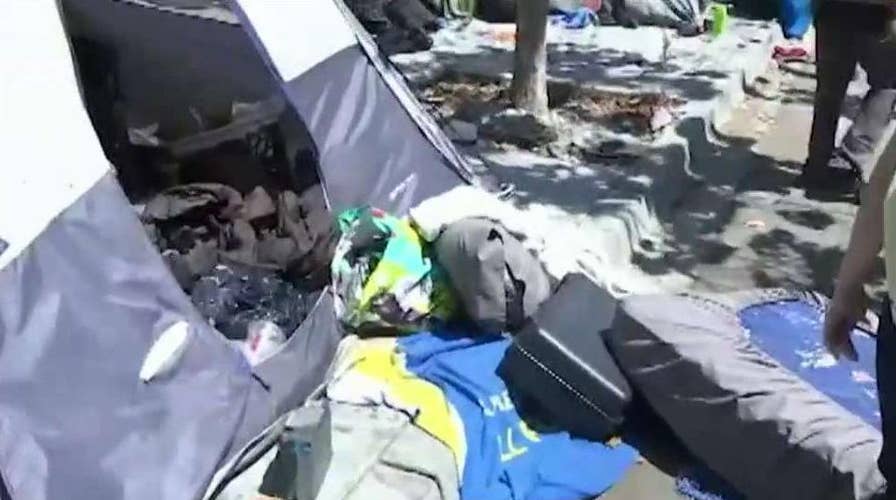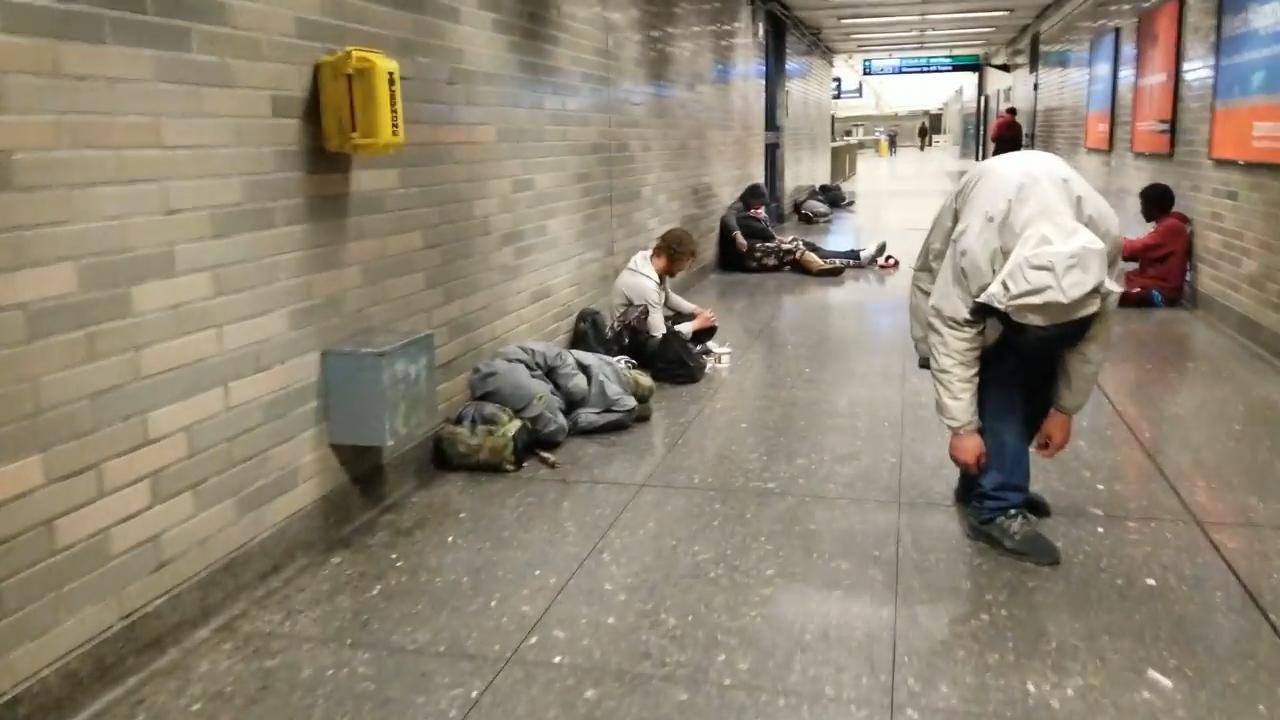San Francisco struggles with growing homelessness problem
The City by the Bay spends hundreds of millions of dollars each year trying to help an estimated 7,500 homeless people; critics say what's needed isn't more money, but a bold new approach.
Watch where you sit on San Francisco Bay Area trains – it could be painful.
Conductors there reportedly have taken to the trains' PA systems to warn riders about hypodermic needles being left on seats by transient drug users as San Francisco fights an uphill battle to clean up thousands of syringes discarded each month all over the city.
“Please look around you for needles before you sit down. There’s at least one needle in car 1551 and there may be others. Thank you,” a conductor said Thursday, according to Buzzfeed technology reporter Caroline O’Donovan.
She said the warning was made over the loudspeaker at every stop.
“Once again, please make sure there are no needles in or around your seat before you sit down,” the Bay Area Rapid Transit conductor said, according to O'Donovan's Twitter account.
The tweets come after a San Ramon woman in May reported being pricked by a needle after she sat down on a San Francisco-bound BART train.
“When I felt that I got up and looked at what was poking me and I felt it and didn't know what it was and realized it was a syringe tip,” Linda Quan told KRON4.
Quan said she reported the incident to authorities and, in addition to getting a hepatitis vaccine, she now must have her blood tested every three months until around the end of 2019 to make sure she didn’t contract any diseases from the needle.
But San Francisco’s health department says it has no known cases of diseases being spread from accidental needle pricks, according to SF Gate.
BART tweeted in April it had launched “several initiatives to help our riders.”
One of the "initiatives" is a section on its mobile website that allows riders to “Report a Biohazard”.
The transportation agency says it’s working to connect homeless people to resources that can help get them off the streets, too. And BART is also hiring more station cleaners and community service officers “to enforce existing laws against vandalism, littering, fare evasion, and open drug use.”
BART appeared to take a dig at the San Francisco city government in one recent social media post, tweeting: “We all want transit to succeed but when you look at the tent cities you can see from our tracks and needles all over the streets we are fighting an uphill battle we were never given the funds to fight.”
The city reportedly spends hundreds of thousands of dollars to hand out around 400,000 syringes each month in an effort to help prevent health risks that drug users may face.
But the health department estimates only 246,000 of those needles come back through 13 access and disposal sites in the area, according to the SF Chronicle.
“It is hard to arrive at an exact number,” health department spokeswoman Rachael Kagan told the newspaper in May. “That said, there is clearly needle litter on our streets, and we are working hard to address that.”
Crews from the health department pick up around 8,000 needles on the streets each month while the city’s public works department collects an average of around 13,000 from homeless encampments, the San Francisco Chronicle reported.
Statistics from the health department reportedly show the needle program is having an effect, however, as it says the number of new HIV infections from San Francisco drug users plummeted from 106 in 2010 to 38 in 2016.











































